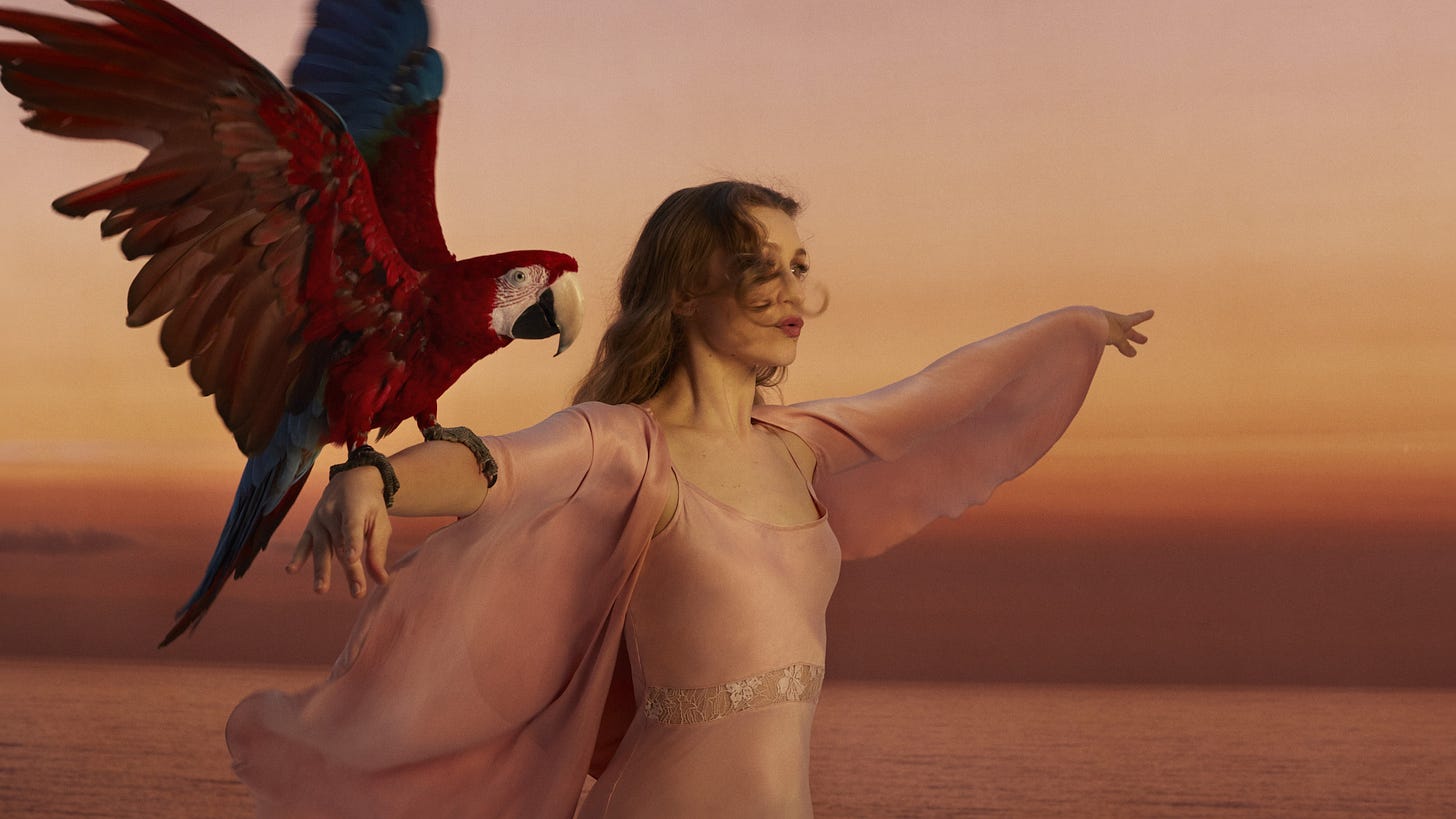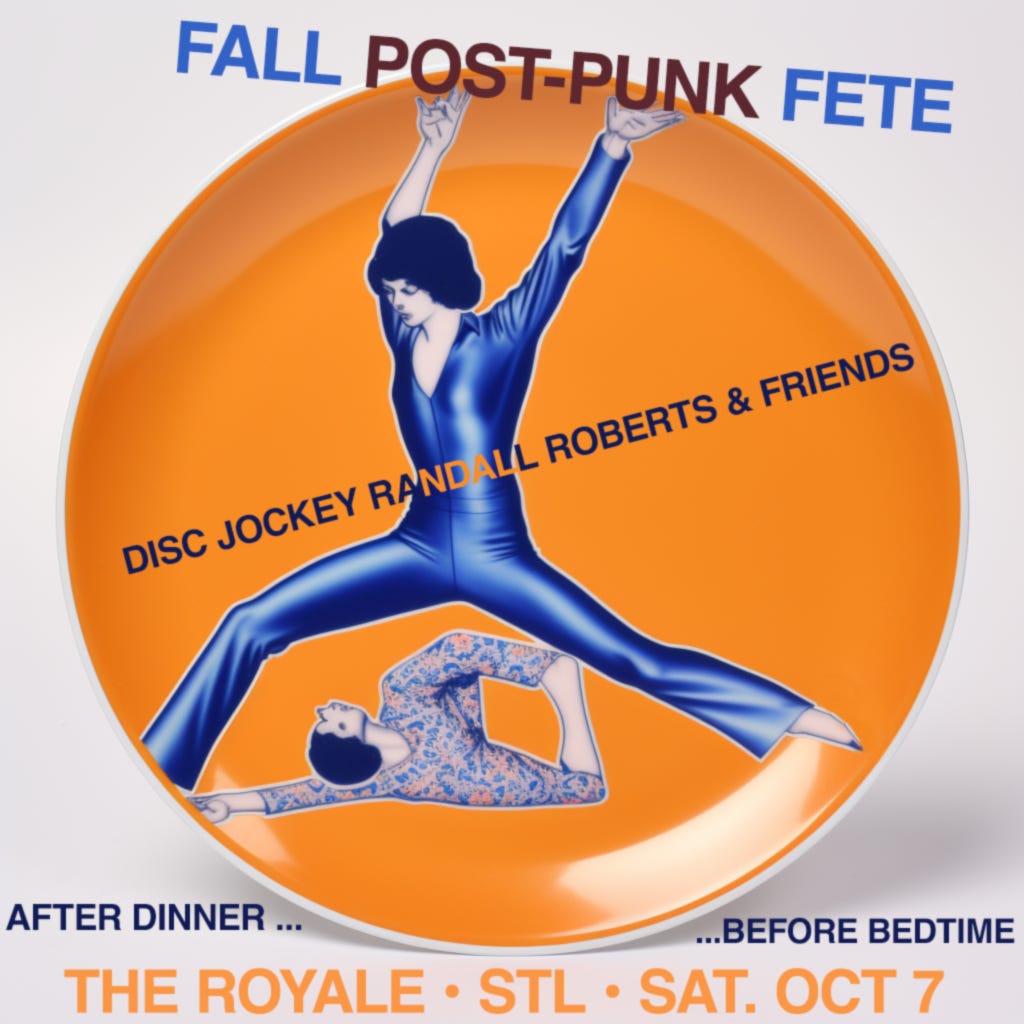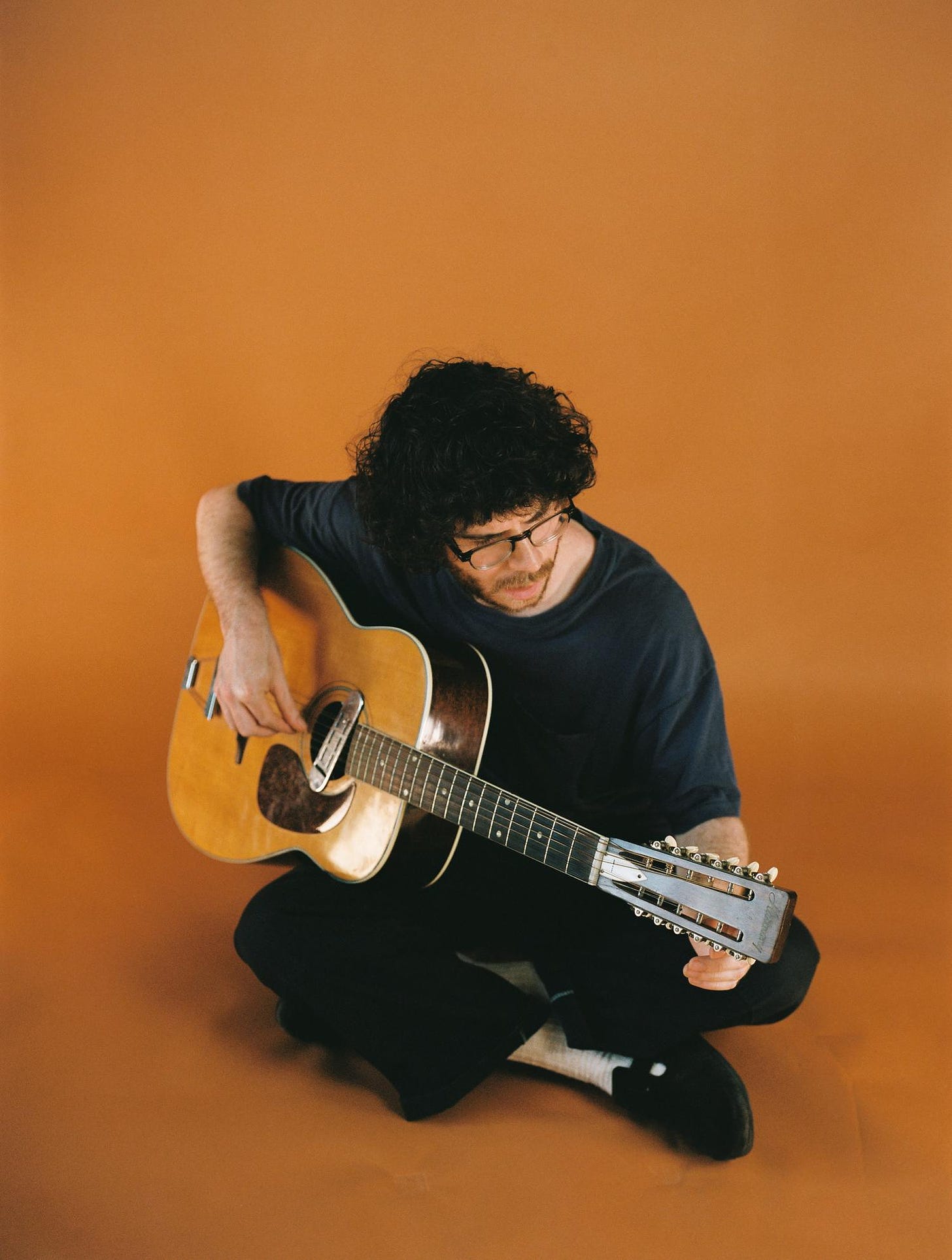Throwback: Joanna Newsom on Spotify; a Sovereign Glory/KDHX radio show from 2002; new Sam Wilkes
Discussed: Bananas, stenches, the music industry, Brunch, Scientology's East Hollywood HQ, music consumption, KDHX, Talib Kweli, the Roots, Sam Wilkes
First up: Here’s an hour-long archival mix/episode from a show I did oh so long ago called Sovereign Glory. It’s on Mixcloud and it’s a quality installment, the first of two hours on a snowy November night in 2002.
Here’s an excerpt from and interview I did with the singer, songwriter and harpist Joanna Newsom in 2015. She’d just released Divers and was doing a little bit of press. I met her at a brunch place called Square One in the shadow of Scientology’s East Hollywood HQ. She ordered French toast. As a longtime fan, I was nervous. Within a few seconds of sitting down at a table on the patio, though, that had passed. She was incredibly nice, super funny and a great interview. I got a few stories out of our sit-down. The one that resonated was an excerpt from the Q&A regarding her thoughts on streaming services, especially Spotify. The story originally appeared in the LA Times.
“Spotify is the banana of the music industry”
Joanna Newsom is not a fan of Spotify, or bananas.
During a recent conversation with the composer, harp player and singer about her forthcoming album, “Divers,” she compared the two after admitting she has a severe aversion to the fruit.
“I’ve walked out of grocery stores because I can tell that there’s a banana over-ripening that’s fallen under the produce bins,” she said. “It’s been there for a few days -- it’s brown and gives off this gas. I can smell it walking in the door.”
Later she was asked about new music technology and replied with an analogy. “Spotify is the banana of the music industry,” she said, sitting at a patio table at a restaurant in the shadow of Scientology’s massive East Hollywood campus. “It just gives off a fume. You can just smell that something’s wrong with it.”
On the eve of Newsom’s forthcoming (Oct. 23) fourth album, she took time out to discuss her new work — and the shifting nature of music consumption.
RR: You don’t offer your albums to the major streaming services. Why not?
JN: I don’t do Spotify. I’m on Pandora. Does that count as streaming?
Kinda. You can’t deliberately call up your songs or albums at will, though. Your songs mix in with whatever the algorithm dictates.
My problem with Spotify is that, obviously the music industry is changing, and I accept that. And the way in which we’ve monetized the creation and consumption of music in the past is also changing. And I accept that too. I don’t love it, but I accept it. But in a way, that phenomenon is sort of a large, zoomed-out way of looking at everything at once. There’s a lot of moving parts. There’s a lot of things that are shifting. It’s cultural. There’s not really a villain.
Is your concern specific to Spotify?
Even with Pandora, you make – I don’t make a lot of money on that, or just record sales in general. But I understand the mechanics of it. My label and I have a particular licensing split, and we each receive our apportioned percentage of whatever the penny that Pandora sends us. I’d love to be making a better income, but it makes a kind of sense. There’s not really a bad guy.
Spotify is different?
Spotify is like a villainous cabal of major labels. The business is built from the ground up as a way to circumvent the idea of paying their artists. The major labels were not particularly happy with the fact that as the royalty money dwindled more and more, their portion of the percentage split agreed upon in their licensing agreement got smaller and smaller.
So someone came up with a great idea that if they start a streaming company, they can make those percentages even smaller. Infinitesimal, because they can make their money from advertising and subscription, and they don’t have to pay their artists anything for that. So it’s set up in a way that they can just rob their artists, and most of their artists have no way to fight it because they’re contractually obligated to stay with the label for x amount of time and you can’t really opt out. It’s a garbage system.
From a music listener’s perspective – and I’m a supporter of artists more than anything – there’s something amazing about it, though.
I agree. It’s a genius idea.
If you were to tell me as a kid that I would have the world’s jukebox – with a few notable exceptions, of course – at my fingertips, I wouldn’t have believed you.
If it wasn’t such a cynical and musician-hating system, I would be all for it. If there was some way they could divide the money they make from advertising and the money they make from subscriptions and actually give it to artists, I would have a completely different opinion about it.
Does that opinion carry over to other such services?
I mean, for all of its what seem to be many flaws that the Tidal system – I shouldn’t say “many flaws” because I haven’t researched Tidal enough. But I know it was kind of roundly made fun of because of the way in which it was unveiled to the world, but from what I gather they were trying to address the issues that make Spotify so very evil. I don’t know if they successfully did it. I should look into it. I understand why Spotify is great. I wish there was a way to provide the service they provide and have nobody lose, nobody be victimized by that.
Calendar alert: I’m playing post-punk records on Saturday at the Royale in STL
Pick hit: Sam Wilkes’ Driving
You could be forgiven for scratching your head at news that the Los Angeles multi-instrumentalist Sam Wilkes was getting ready to release a new guitar-driven record, and that he’d be singing on it. Wilkes’ work among the city’s experimental jazz scene, especially alongside regular collaborator Sam Gendel, has scored our lives since his early releases on Leaving. If you haven’t checked out Music for Saxofone and Guitar or its More Music … sequel, add them to your holdings pronto. Same goes for his stellar debut, Wilkes, and Live on the Green. As a member of Knower and a regular Louis Cole collaborator, Wilkes can let loose on his bass with a gymnastic force, filled with both grace and power.
All of which is to say, though Wilkes has dabbled with singing and “songs,” most memorably on the sublime song “Descending,” he’s never before gone so full all-in on a vocal record, nor has he layered his midrange with acoustic and electric guitar and not saxophone.
Release notes that accompany Driving first reference Van Morrison when mentioning Wilkes’ influences going in. The notes continue, “Standing beside Morrison, the usual suspects are all present, if somewhat abstractedly: Dylan, The Dead, Joni, the Fab Four. Wilkes has developed a reputation as an experimental jazz luminary, but his deep affinity for the pop/rock/folk idiom of the latter twentieth century rings clear throughout Driving. More so than any Wilkes release to date, Driving is a collection guided by and dedicated to the man’s attention to songcraft.”
Driving is a mesmerizing record whose nine songs are as wildly visionary – in the mystical sense – as they are psychedelic. Sonically contemporary but connected to the essence of 1970s song, layered with accents and flair, expertly arranged, it’s a head record of the highest order. At times, as on “Ag,” Wilkes filters his voice through effects, phrasing lines to create oddball melodies, mixing in finger-picked guitar and washes of strings, metronomic rhythm boxes and robotic sighs. At others Wilkes vocalizes minus filtered effects, layering his voice to create harmonic washes.
Sam Wilkes’ Driving comes out on October 6. For In Sheep’s Clothing, Sam recommended five records that he’s been inspired by. You can read about them here.








